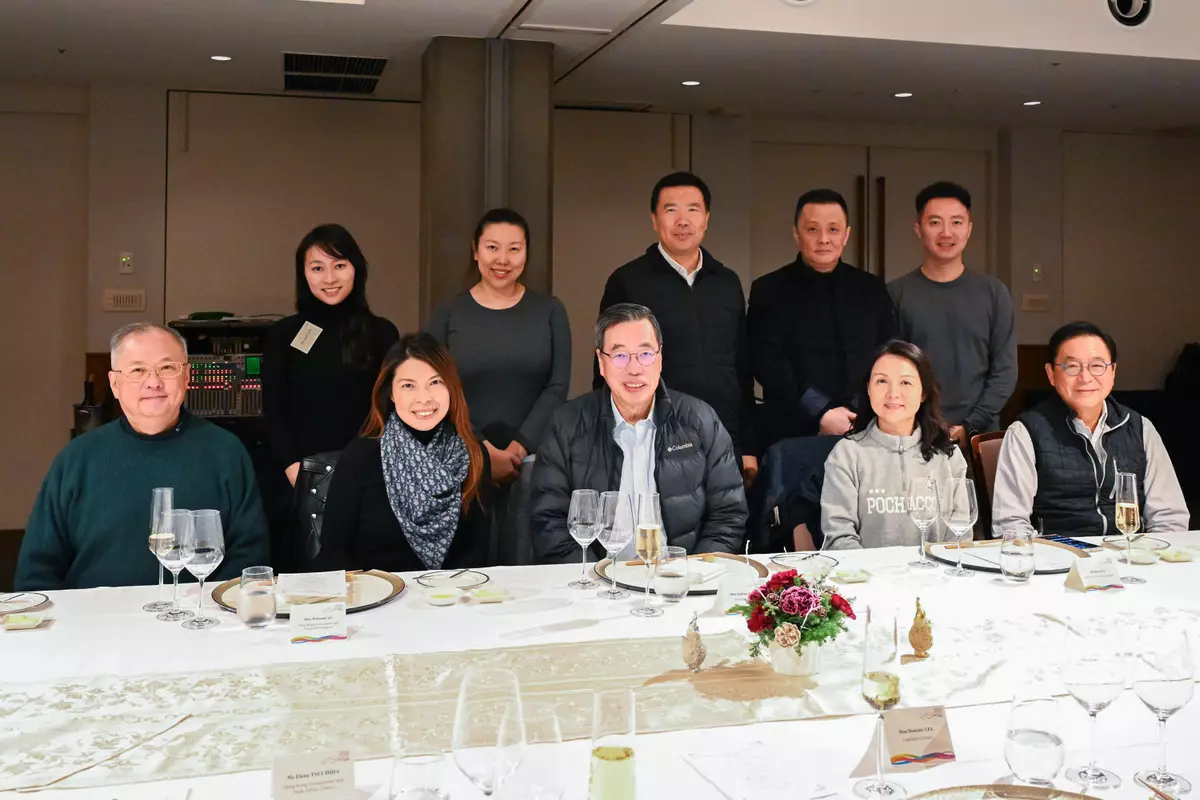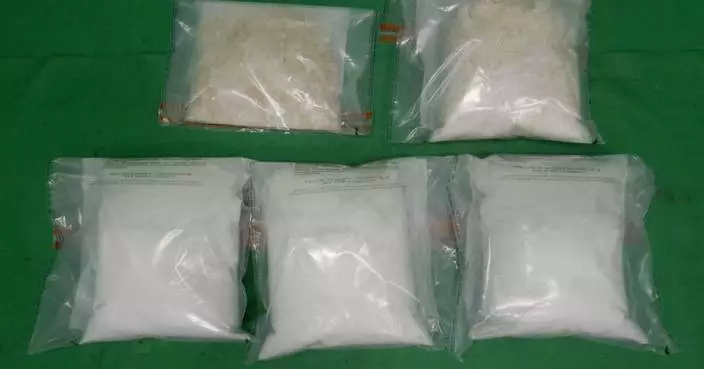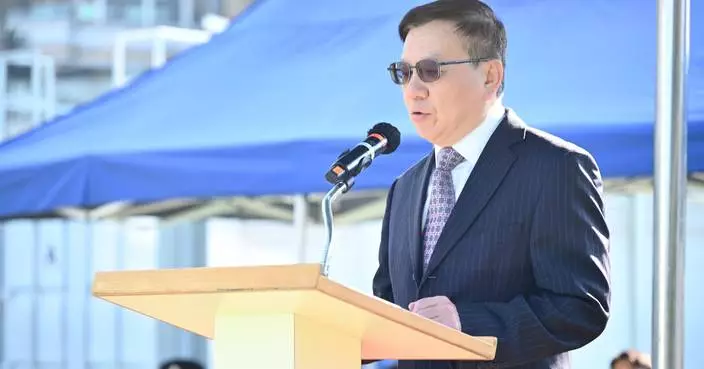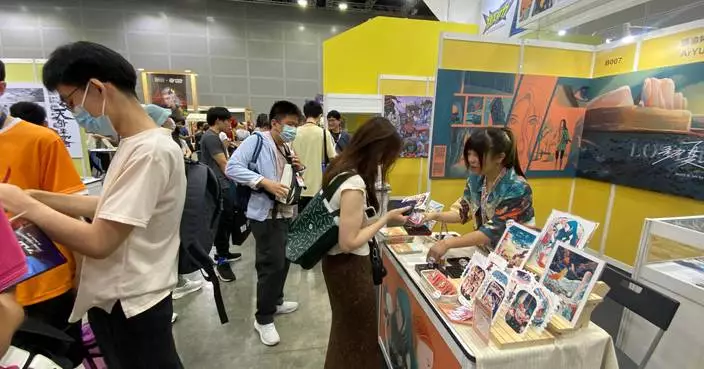CE's speech in delivering "The Chief Executive's 2024 Policy Address" to LegCo (6)
V.Build Hong Kong into an International Hub for High‑calibre Talents
(A)Co‑ordinate and Promote Integrated Development of Education, Technology and Talents
103. Education nurtures our future, technology denotes our strength, and talents lead our development. The Government will set up the Committee on Education, Technology and Talents. Led by the Chief Secretary for Administration, the committee will co‑ordinate and drive the integrated development of education, technology and talents, expand connections, formulate policies to attract and cultivate talents, foster the development of technologies, and also promote Hong Kong as an international hub for high-calibre talents.
(B)Attract Talents
104. Hong Kong boasts five of the world's top 100 universities and is an international hub for exchange and collaboration among high‑calibre talents.
Trawl for Talents
105. The Government implemented a new talent admission regime in late 2022. More than 380 000 applications have been received to date, and around 160 000 talents have arrived in Hong Kong with their families.
106. In the next five years, there will be a projected shortage of around 180 000 workers across different sectors. To build a quality talent pool for development, we will reform various aspects of the talent admission regime, including:
(i) updating the Talent List to include talents required for development of the "eight centres";
(ii) expanding the list of universities under the Top Talent Pass Scheme to 198universities by adding 13 top Mainland and overseas universities, and extending the validity period of the first visa of high‑income talents under the scheme from two years to three years;
(iii) enhancing the General Employment Policy and the Admission Scheme for Mainland Talents and Professionals, providing new channels to attract experienced specialists in specific skilled trades facing acute manpower shortage to come to Hong Kong. There will be a quota under the new arrangement;
(iv) introducing a new mechanism under the Quality Migrant Admission Scheme, proactively inviting top‑notch talents to come to our city for development, promoting Hong Kong as the focal point of international high‑calibre talents; and
(v) extending for two years the pilot arrangement of including graduates from the GBA campuses of Hong Kong universities under the Immigration Arrangements for Non‑local Graduates.
Assist Talents in Pursuing Development in Hong Kong
107. The HKTE will step up promotion of its online platforms to offer comprehensive information on salaries, taxation, education, visas and so on, in addition to providing personalised assistance. The HKTE will expand its network of collaborative partners and organise online and in‑person job fairs with industries and employer organisations, so that employers can directly match jobs with talents. It will also organise another international talent forum and conduct overseas promotion.
Promote Development of an International Hub for Post-secondary Education
Nurture Future Talents and Establish the "Study in Hong Kong" Brand
108. The Government is committed to developing Hong Kong into an international hub for post‑secondary education. Relevant measures include:
(i) incentivising more local students to pursue advanced studies – We will set up the Hong Kong Future Talents Scholarship Scheme for Advanced Studies, beginning in the 2025/26 academic year, offering scholarships each year to up to 1 200 local students enrolling in designated postgraduate programmes;
(ii) creating the "Study in Hong Kong" brand – We will strive to host international education conferences and exhibitions. We will also encourage local post‑secondary institutions to enhance collaboration and exchange with their counterparts around the world in promoting the "Study in Hong Kong" brand on a global scale, and to attract more overseas students, especially those from ASEAN and other B&R countries, to study in our city through the provision of scholarships and other incentives; and
(iii) improving hostel facilities – We will launch a pilot scheme to streamline the processing of application in relation to planning, lands and building plans, so as to encourage the market to convert hotels and other commercial buildings into student hostels on a self‑financing and privately‑funded basis, increasing the supply of student hostels. The Government will also make available suitable sites for the private sector to build new hostels, having regard to market demand. The Development Projects Facilitation Office under the Development Bureau (DEVB) will provide one‑stop advisory and facilitation services for these projects.
Promote Quality Development of Self-financing Institutions
109. We will introduce a bill next year to amend the Post Secondary Colleges Ordinance, to improve the regulatory and quality assurance mechanisms of self‑financing post‑secondary institutions.
Develop the Northern Metropolis University Town
110. The Government has earmarked over 80 hectares of land in the Northern Metropolis for the Northern Metropolis University Town, and will encourage local post‑secondary institutions to introduce more branded programmes, research collaboration and exchange projects with renowned Mainland and overseas institutions in a flexible and innovative manner. We will retain flexibility in the planning process to facilitate development of student hostels. We plan to publish the Northern Metropolis University Town Development Conceptual Framework in the first half of 2026.
(C) Nurture Talents
Promote Multiple Pathways
Advance the Development of Universities of Applied Sciences
111. The Hong Kong Metropolitan University has been recognised as the first university of applied sciences (UAS) in Hong Kong. The UAS alliance will be established this year to, among other things, embark on joint promotion and strengthen collaboration with UASs around the world. The Government has allocated a start‑up fund of $100million for the alliance.
Expand Our Vocational Talent Pool
112. The Government will build a campus for the newly established Hong Kong Institute of Information Technology, under the Vocational Training Council, and develop its Lift and Escalator Technology Centre.
Promote STEAM Education in Primary and Secondary Schools
113. The EDB will establish the Steering Committee on Strategic Development of Digital Education to promote digital education, renew the Junior Secondary Science Curriculum and provide support for teachers in using AI in teaching.
Enhance Support for Schools, Teachers and Students
114. The Government will allocate $2billion to set up the Teacher Professional Development Fund to support the long‑term development of the teaching profession, and to enhance the training and exchange programmes for teachers. A provision of about $470million will be allocated to enhance the learning and teaching of English, Putonghua and other languages. We will also strengthen support for students with special educational needs and continue to provide subsidies such as textbook assistance for students with financial needs.
Expedite Youth Hostel Projects
115. In response to our young people's aspirations to have their own living space, the Government launched the Youth Hostel Scheme and expanded it two years ago by subsidising non‑governmental organisations (NGOs) to rent suitable hotels and guesthouses for use as youth hostels. We have also set up a task force to offer targeted support and technical advice, including providing relevant NGOs with assistance in negotiating with hotel owners to expedite agreements. The number of hostel places has now increased to about 3 000.
Support Young People to Purchase Subsidised Sale Flats
116. The HKHA will allocate an extra ballot number to young family applicants and one‑person applicants aged below 40 with White Form status for the purchase of Home Ownership Scheme (HOS) flats from the next HOS sale exercise onwards. Starting from the next White Form Secondary Market Scheme (WSM) exercise, the WSM quota will increase by 1 500, all of which will be allocated to young family applicants and one‑person applicants aged below 40.
Strengthen Support for Youth Development
117. We will create, among others, the "Youth Post" hostel and spaces for cultural and arts exchanges for youths in the Kai Tak Community Isolation Facility. We will also set up a physical platform for interaction in the Nam Cheong District Community Centre for "Youth Link" members. Communication with young people will be augmented through various means, including leveraging the new mobile application "HKYouth+" and other online media.
118. To strengthen support for unleashing the potential of young people, the Government will establish a new interactive space and set up a video studio at the Youth Square. We will also launch a new round of the Funding Scheme for Youth Life Planning Activities to sponsor NGOs in providing enhanced services and strengthening national affairs content. The Hong Kong Jockey Club will contribute $300million to support these initiatives.
119. We will continue to promote the Mainland and overseas exchange and internship programmes and enhance the GBA Youth Employment Scheme by relaxing eligibility requirements to allow young people aged 29 or below with sub‑degree or higher qualifications to join the scheme, increasing the limit of monthly allowance granted to enterprises to $12,000, and exploring reciprocal arrangements.
120. The Youth Employment and Training Programme will be refined and its Chinese title renamed, with the upper age limit for participants raised to 29. Additional workplace attachment opportunities will be provided in the GBA under the programme.
(To be continued.)








